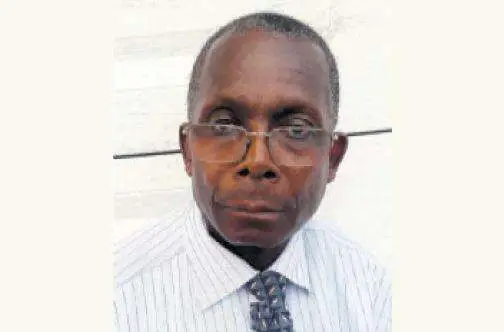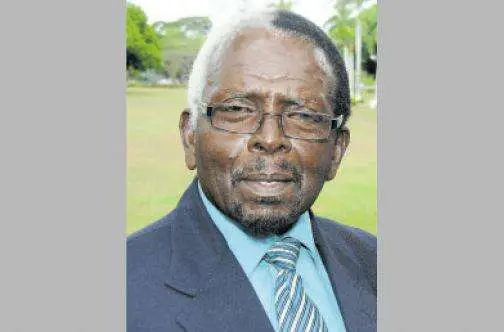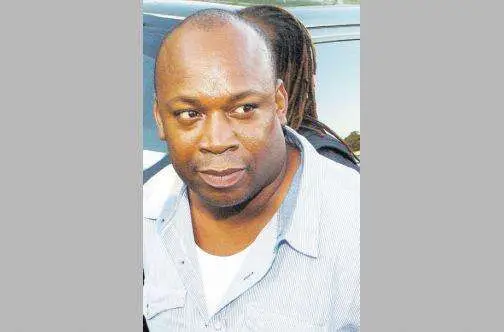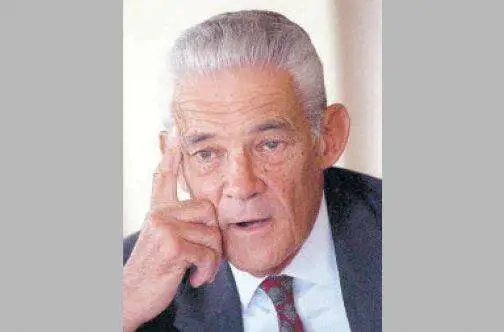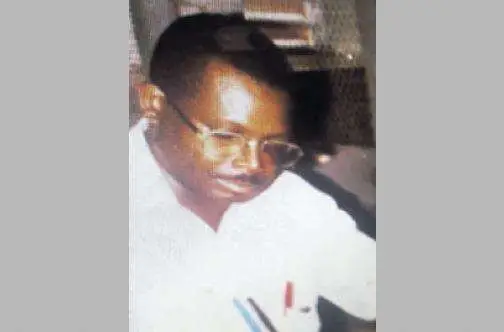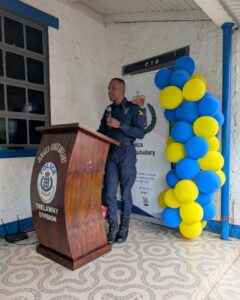
Observer NY correspondent reflects on 50 years in journalism, D K Duncan, Pearnel Charles, ‘Dudus’ Coke, Clovis
New York USA — With almost everything and anything, 50 years is a significant and important milestone to be cherished and celebrated. In three days’ time I will join the golden anniversary club, wondering where have the years gone.
I recall vividly the Sunday morning in August of 1968 that Radio Jamaica (then Radio Jamaica and Rediffusion ) aired my first news item. It was about a religious concert that would take place that evening at the local school room in the hillside district of Mt Regale, in deep rural St Mary where I grew up.
The broadcast came days after I had journeyed into Kingston and met with the late Barbadian J C Proute, then the station’s news editor, who interviewed me for the position of correspondent for which I had applied.
It would begin a most satisfying journey during which I also became a correspondent for The Gleaner, then for the now defunct Jamaica Daily News, writing from St Mary. In later
years I was also a correspondent in Jamaica for the Yorkshire Post in the United Kingdom as well as Assistant managing editor for the St Catherine Reporter, a community-based weekly published out of Spanish Town, St Catherine.
During all this time, I remained a correspondent for Radio Jamaica, first in St Mary and later in the parish of St Catherine. It was the RJR experience that was most impactful in honing my career in journalism.
I had to interact with a newsroom that had some of the best journalists at the time. People who were tough, experienced, professional and no-nonsense. You had to be at the top of your game to deal with the likes of Terry Smith, Leo Ferguson, and David Ebanks, who have all passed on; Jennifer Grant, the Geddes brothers Tino and David; Granville Newell, Michael Sharpe, Jannett Mowatt — who later became editor of the news-room — and Kathy Barrett, among many others.
I learnt an awful lot from these and countless others in the profession and from a series of in-house training sessions which the station conducted over many years back then.
Though I had my first news item published in 1968, my real big break came in 1974. The euphoria associated with the People’s National Party’s (PNP) win at the polls two years earlier and its emphatic victory at the local government elections of 1974 was still fresh.
One of the party’s most prominent officers at the time, Dr D K Duncan, had gone on trial in the then Port Maria Resident Magistrates Court in St Mary on charges of assaulting a young, female police constable.
The incident drew islandwide interest. The day of the trial was maybe more significant for those who turned up in what was a clear plan to offer legal defence — later denied — to Dr Duncan.
Inside the crammed courtroom were attorneys Anthony Spaulding and Noel Silvera — two members of the Cabinet at the time, as well as a young, popular and rising star in the party, Ronald I McIntosh, an attorney who was also mayor of Port Maria .
There were other high-profile party functionaries both in and outside the court, which was presided over by a frail-looking Resident Magistrate Stella Gibson. She had a reputation for
being stern but also fair.
The trial, which lasted for only a couple hours, ended with Dr Duncan being acquitted. Within minutes my report on the outcome of the trial was on air. Later that evening I did my first voice clip in a more extensive report on the trial.
Now at a point where I had gained significant recognition, I began to travel the parish extensively, covering event after event such as high-profile agricultural meetings, service club activities, political meetings, forums on various subject matters, election activities, as well as religious and sport events.
The plight and needs of the residents of the deep rural communities were never forgotten in my many news stories, especially as they related to poor road conditions and the need for proper water supply and electricity.
This was at a point too where I began interviewing prominent people from all strata of society, including late Prime Minister Michael Manley, business and religious leaders, politicians, and diplomats.
My next most high-profile stories were to come from the trial of the Rhoden Brothers in Spanish Town somewhere in the early 1980s. A prominent business and political family in St James, three of the brothers were tried — and subsequently acquitted — on charges of exporting marijuana to the United States.
The trial in the St Catherine Home Circuit Court was significant because of whom the Rhodens were. Another brother, who had been a captain in the Jamaica Defence Force, was serving as a Member of Parliament representing the Jamaica Labour Party (JLP) for a St James constituency at the time.
The trial generated intense interest nationwide as well as embarrassment for the Rhoden family and the JLP. I sat ringside in court for the duration of the trial and took notes as the
legal battle was fought by prosecutor Kent Pantry — who later became director of public prosecutions — and the legal luminary Frank Phipps.
While I was not the only reporter at the trial for RJR, I was able to help bring the information to the public. The jury eventually acquitted the brothers.
I was now living in Spanish Town where I met Basil Walters, known mostly as an entertainment journalist, but who over the years had broken several major news stories. We formed an alliance, and soon after he floated the idea of launching a community-based newspaper. The idea did not take long to win my support.
Shortly after he introduced me to Desmond Allen, a veteran and experienced newspaper journalist. Several meetings later and with careful planning, the St Catherine Reporter was launched, with writer C G Harris on board.
The very first edition carried a story of national importance rather than as a purely local community item. Basil had sought and interviewed the retired former Commissioner of Police Basil Robinson, one of the principals in the controversial 1976 state of emergency imposed by the then PNP Government.
Robinson confirmed in the interview that based on intelligence at the time, “the state of emergency was justified”. The former commissioner would go on to say that because of the Official Secrets Act, he could not say more.
But the report led the RJR newscast, as it marked the first time that one of the men who had advised Manley to call it, was speaking publicly on it.
The state of emergency, called as a crime wave threatened to overwhelm Jamaica, had torn the country apart, leading to the indefinite detention of several prominent JLP activists, the most well known of whom was rising star, Pearnel Charles.
As if that story did not provide sufficient recognition for the paper, a few weeks later a popular DJ, Major Worries, was murdered in Spanish Town. The incident sparked two days of protests and near riot.
To make matters worse, Basil (Walters) was driven around in a car trunk by the police, who presumably did not think he was a journalist because of his Rastafarian dreadlocks and attire.
We covered the murder, the protests, and Basil’s apparent detention wall-to-wall, resulting in the paper being sold out and later winning the Press Association Of Jamaica Human Interest Story Award for our coverage.
That edition of the paper soon became a collector’s item. Unfortunately, the success did not last due to a lack of capital that could have put in the necessary staff and free Desmond, Basil and myself to concentrate on the journalism aspects of the publication, instead of each one trying to be a Jack of all trades.
Still, we were proud to be first to publish people like Clovis Brown, the top newspaper cartoonist, and Pete Sankey — now senior associate editor of the Jamaica Observer, which
Desmond joined as its founding editor and Basil as an entertainment reporter.
I continued to write for Radio Jamaica until December 1994 when I migrated to the United States. I had come to the US with mixed feelings but with one particular determination, to continue in journalism.
Well it took some time, a visit to Jamaica in 2009, and the usual link-up with Basil and Desmond — from whom I had learnt so much in my transition of sorts from radio to newspaper, before this would happen.
Shortly after my return to New York, Desmond emailed to ask me to get some response from the US Government pertaining to the Christopher “Dudus” Coke saga for a story the Observer was working on.
I had some apprehension but saw an opportunity and eagerly took it. Before long I was on the phone with people from the US State and Justice departments, the US Attorney’s Office for the Southern District of New York, and the White House.
The result of my efforts was that on Thursday, October 9, 2009 the story led the newspaper. Karyl Walker and Kimone Thompson also contributed to the article writing from Kingston.
For me it was a resurrection of sorts. Since then, I have written hundreds of stories about Diaspora affairs, covered the Dudus trial here, and reported on international affairs that are pertinent to Jamaica’s interest.
My greatest satisfaction writing from here for the Observer is attending the United Nations General Assembly to cover Jamaica’s participation in the various forums at the world body.
The UN is something I learnt about during my early days at school. Sitting in its hallowed halls as a reporter was unthinkable then. That and other experiences make me feel I am
ready to continue writing for the next 50 years.
Thanks to all who have aided in my development in this noblest of professions, journalism. Still, confession is good for the soul — it has not always been easy. And that is an understatement.
Harold Bailey can be reached at gandhihgj2@aol.com or at editorial@jamaicaobserver.com
